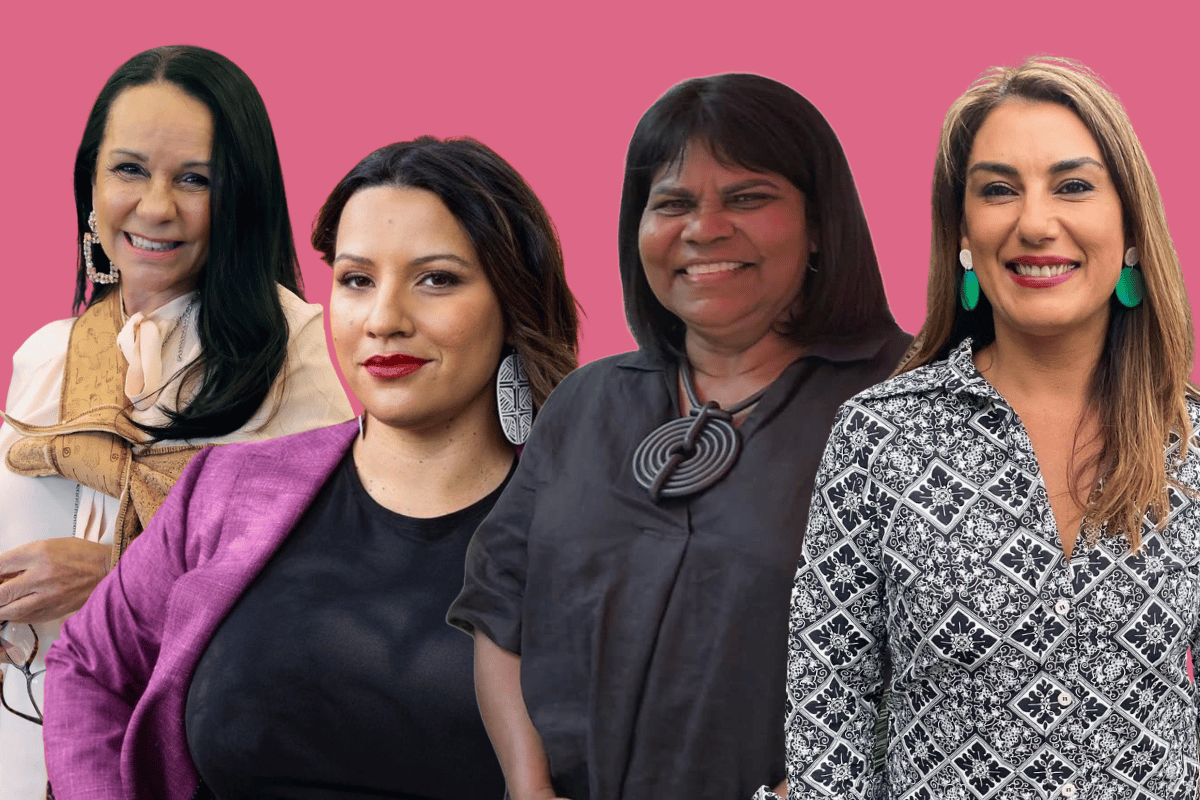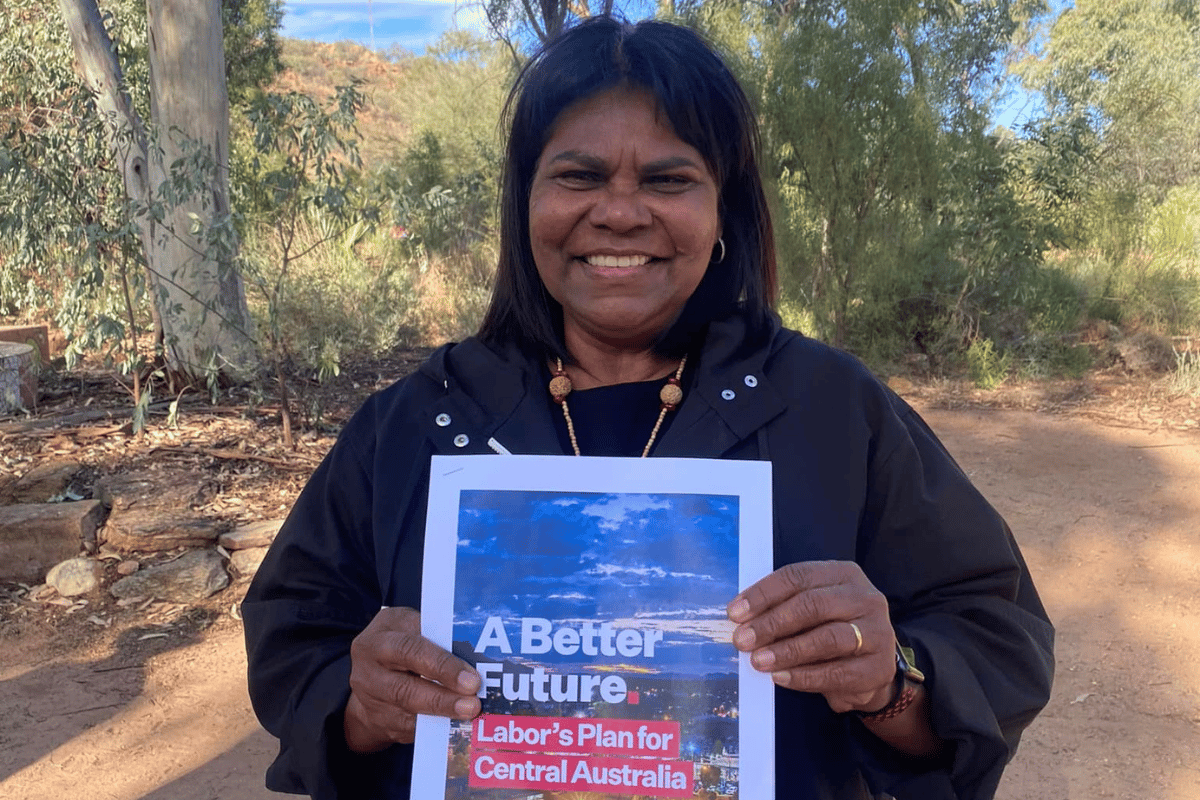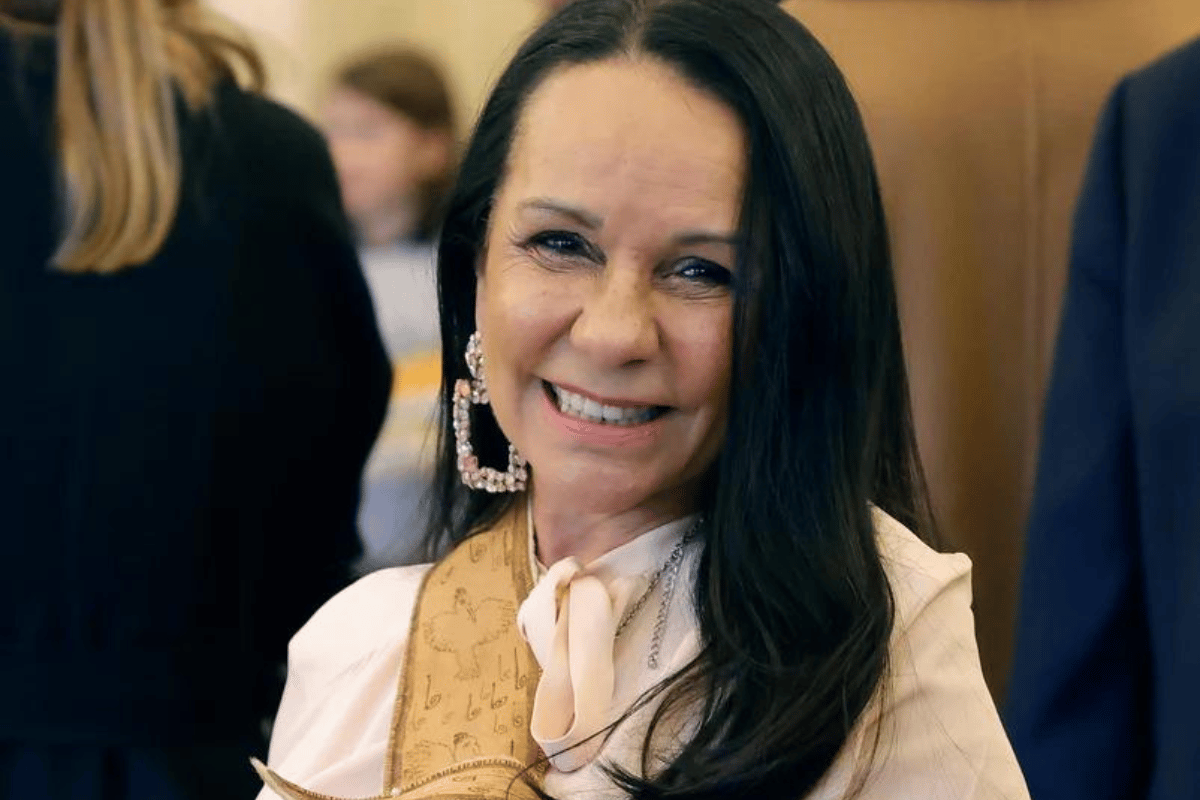
This post deals with domestic violence and might be triggering for some readers.
In 2022, Indigenous women are making noise in parliament.
As a result of this year's federal election, we saw not only a "teal wave" of independents championing climate change, but we've also seen a "Black wave" of incredible First Nations leaders championing causes close to them and their communities.
Australians voted in four new Indigenous representatives, including Federal Labor Senator for Victoria, Jana Stewart, Northern Territory's Member for Lingiari, Labor's Marion Scrymgour, and Labor MP for Robertson, Dr Gordon Reid. In the Senate, NT Country Liberal's Jacinta Nampijinpa Price also won a seat.
Watch: Linda Burney's powerful maiden speech to parliament. Post continues below.
Returning, are Labor senators Pat Dodson from Western Australia, Malarndirri McCarthy from the NT and Linda Burney from New South Wales. Independent senator for Tasmania Jacqui Lambie, Greens senators Dorinda Cox from WA and Lidia Thorpe from Victoria also kept their spots in the Senate.
As Australia celebrates NAIDOC Week, we look back at the stories behind four of the women elected and re-elected, to find out what made them want to pursue politics and some of the key issues they will each be championing this year.


